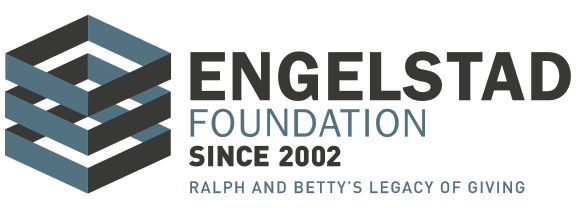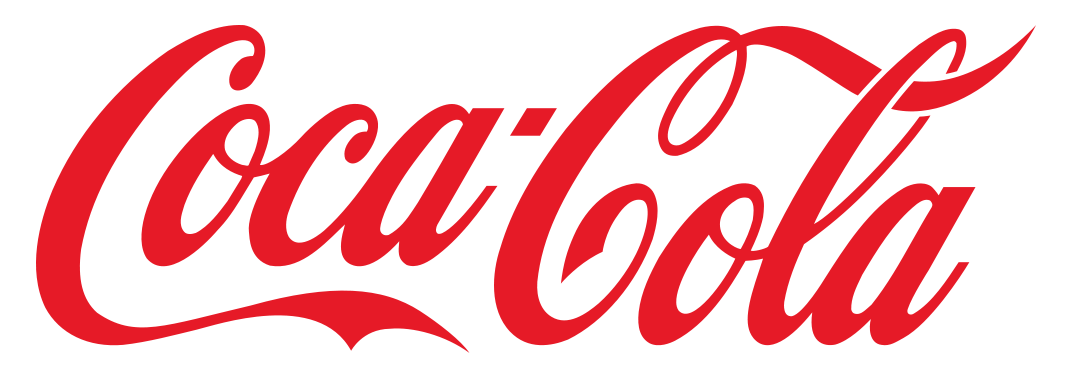
The Mission of Special Olympics
The mission of Special Olympics is to provide year-round sports training and athletic competition in a variety of Olympic-type sports for children and adults with intellectual disabilities, giving them continuing opportunities to develop physical fitness, demonstrate courage, experience joy and participate in a sharing of gifts, skills and friendship with their families, other Special Olympics athletes and the community.
The Vision of Special Olympics
Special Olympics is an unprecedented global movement which, through quality sports training and competition, improves the lives of people with intellectual disabilities and, in turn, the lives of everyone they touch.
- Special Olympics empowers people with intellectual disabilities to realize their full potential and develop their skills through year-round sports training and competition.
- As a result, Special Olympics athletes become fulfilled and productive members of their families and the communities in which they live.
- Special Olympics is an experience that is energizing, healthy, skillful, welcoming and joyful.
Today, Special Olympics stands as a leader in the field of intellectual disability and has sharpened the focus on its mission as not just "nice," but critical, not just as a sports organization for people with intellectual disabilities, but also as an effective catalyst for social change. Children and adults with intellectual disabilities who participate in Special Olympics exhibit boundless courage and enthusiasm, enjoy the rewards of friendship and ultimately discover not only new abilities and talents but "their voices" as well.
The Special Olympics mission remains as vital today as it did when the movement was founded in 1968. Special Olympics strives to create a better world by fostering the acceptance and inclusion of all people.
Through the power of sports, people with intellectual disabilities discover new strengths and abilities, skills and success. Our athletes find joy, confidence and fulfillment-on the playing field and in life. They also inspire people in their communities and elsewhere to open their hearts to a wider world of human talents and potential.
There are as many as 200 million people with intellectual disabilities around the world. Our goal is to reach out to every one of them-and their families as well. Special Olympics does this through a wide range of trainings, competitions, health screenings and fund-raising events. We also create opportunities for families, community members, local leaders, businesses, law enforcement, celebrities, dignitaries and others to band together to change attitudes and support athletes.
Our History
In 1968, Eunice Kennedy Shriver founded and was the honorary chairman of Special Olympics. She was a leader in the worldwide struggle to improve and enhance the lives of individuals with intellectual disabilities for more than three decades. Shriver took over the direction of the Joseph P. Kennedy Foundation, which was established in 1946 as a memorial to Joseph P. Kennedy who was killed in World War II. The two major objectives of this foundation are: to seek the prevention of intellectual disabilities by identifying its causes and to improve the means by which society deals with citizens who have intellectual disabilities.
In 1972, Dr. Roger Kerns (Fargo, North Dakota) founded Special Olympics North Dakota (SOND). Dr. Kerns’ first experience with Special Olympics happened when he took some children with intellectual disabilities to compete in track & field at Soldiers Field in Chicago. After realizing the difference Special Olympics could make on a person’s life, he organized the first Special Olympics Games in Fargo, North Dakota during the summer of 1972.
From a backyard summer camp for people with intellectual disabilities to a global movement, Special Olympics has been changing lives and attitudes for nearly 50 years.
How It All Began
It all began in the 1950s and early 1960s, when Eunice Kennedy Shriver saw how unjustly and unfairly people with intellectual disabilities were treated. She also saw that many children with intellectual disabilities didn't even have a place to play. She decided to take action.
Soon, her vision began to take shape, as she held a summer day camp for young people with intellectual disabilities in her own backyard. The goal was to learn what these children could do in sports and other activities-and not dwell on what they could not do.
Throughout the 1960s, Eunice Kennedy Shriver continued her pioneering work-both as the driving force behind President John F. Kennedy's White House panel on people with intellectual disabilities and as the director of the Joseph P. Kennedy Jr. Foundation. Her vision and drive for justice eventually grew into the Special Olympics movement.
July 20, 1968
The first International Special Olympics Summer Games are held at Soldier Field in Chicago, Illinois, USA. A thousand people with intellectual disabilities from 26 U.S. states and Canada compete in track and field, swimming and floor hockey.
December 1971
The U.S. Olympic Committee gives Special Olympics official approval as one of only two organizations authorized to use the name "Olympics" in the United States.
1972
Dr. Roger Kerns of Fargo founds Special Olympics North Dakota (SOND) after helping children with intellectual disabilities compete at Soldier Field in Chicago.
Summer 1972
The first Special Olympics Games are held in Fargo, North Dakota.
March 1975
The first major Special Olympics benefit gala is held in Washington, D.C, with U.S. President Ford as honorary chairman and featuring a rare live performance by Barbra Streisand.
February 5-11, 1977
Steamboat Springs, Colorado, USA hosts the 1st International Special Olympics Winter Games. More than 500 athletes compete in skiing and skating events. CBS, ABC and NBC television networks cover the Games.
June 1981
Wichita, Kansas (USA) Police Chief Richard LaMunyon launches a Special Olympics awareness campaign that becomes the Law Enforcement Torch Run for Special Olympics. The Torch Run grows into the movement's largest grassroots fundraiser, raising approximately $30 million each year.
October 1987
"A Very Special Christmas," a benefit album featuring holiday music by top rock 'n' roll performers, is released worldwide. It is produced by Jimmy and Vicki Iovine of A&M Records and Bobby Shriver, with all earnings going to Special Olympics. More than two million records, compact discs and cassette tapes are sold.
February 1988
The International Olympic Committee (IOC) signs a historic agreement with Sargent and Eunice Kennedy Shriver officially endorsing and recognizing Special Olympics.
1989
Official launch of the Special Olympics Unified Sports® initiative, which brings together people with and without intellectual disabilities on the same team.
March 20-27, 1993
The 5th Special Olympics World Winter Games are hosted in Salzburg and Schladming, Austria. These are the first World Games held outside North America.
January 1997
Healthy Athletes® becomes an official Special Olympics initiative, providing health-care services to Special Olympics athletes worldwide. The program includes free vision, hearing and dental screening, injury prevention clinics and nutrition education.
17 December 1998
U.S. President Bill Clinton and First Lady Hillary Rodham Clinton host "A Very Special Christmas from Washington, D.C." It's the first time the White House hosts a Special Olympics gala and the first time that artists from "A Very Special Christmas" album series gather together to perform. In 2000, President and Mrs. Clinton host "A Very Special Christmas" for the second time.
May 18-22, 2000
As part of the "Campaign for Special Olympics," actor Arnold Schwarzenegger joins Special Olympics athletes to light the Flame of Hope at the Great Wall of China. They launch the Special Olympics China Millennium March and begin the most ambitious growth campaign in the movement's history. China pledges to increase its number of athletes from 50,000 to 500,000 by 2005.
October 2001
Special Olympics develops and distributes So Get Into It® kits for students with and without disabilities to schools and teachers worldwide at no cost. They teach young people about intellectual disabilities while empowering them to "be the difference." The lessons highlight values of inclusion, acceptance and respect.
June 10, 2006
U.S. President George W. Bush and First Lady Laura Bush host a tribute dinner at the White House to honor Special Olympics for its unprecedented growth over the past five years. The event also celebrates the 86th birthday of founder Eunice Kennedy Shriver.
July 2008
Special Olympics celebrates its 40th anniversary as a true global movement, with nearly three million athletes in more than 180 countries.
May 2009
The U.S. National Portrait Gallery unveils a historic portrait of Eunice Kennedy Shriver. The painting is the first portrait the Gallery has ever commissioned of an individual who has not served as a U.S. President or First Lady.
August 11, 2009
The founder of Special Olympics, Eunice Kennedy Shriver, dies at her family home in Massachusetts. Letters and messages celebrating her contribution to humanity pour in from world leaders and people from around the world.
January 2011
The Special Olympics movement mourns the death of Sargent Shriver, husband of late founder Eunice Kennedy Shriver. He was also a longtime Special Olympics President and Chairman of the Board Emeritus.
February 2012
The National Basketball Association and Special Olympics, with the support of The Coca-Cola Company, hold the first annual NBA Cares Unified Sports Basketball game. The event takes place as part of the 2013 NBA All-Star weekend in Houston, Texas, USA.
May 2014
Special Olympics' global reach expands to 4.4 million athletes around the world. Census numbers also show that as many as 80,000 events and competitions are held annually.
July 2014
U.S. President Barack Obama and First Lady Michelle Obama host "Celebration for Special Olympics and a Unified Generation" at the White House. Some of the world's leading social activists, business leaders, sports legends and entertainers attended the event, which saluted the work of Special Olympics in engaging young people to fight inactivity, intolerance, and injustice in their schools and communities.
2017
Special Olympics North Dakota celebrates its 45th Anniversary.
Special Olympics founder Eunice Kennedy Shriver posthumously receives the Arthur Ashe Courage Award at the 25th Annual ESPY Awards.
2018
Special Olympics celebrates its 50th Anniversary.
2022
Special Olympics North Dakota celebrates its 50th Anniversary.




